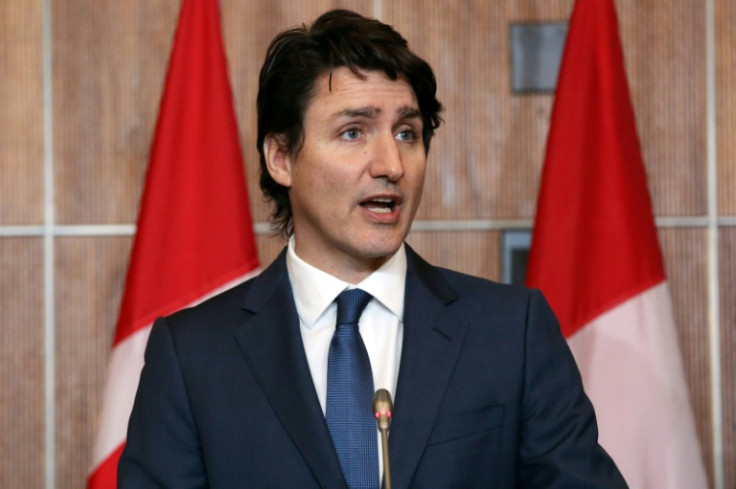US Airspace Closures Come Amid Jitters Over Mystery Objects

The US and Canada were working Sunday to recover the remnants of three mysterious objects shot down over their territory, amid growing jitters that resulted in several brief air-space closures in recent days.
Reflecting the heightened state of alert, US authorities on Sunday first announced an airspace closure over Lake Michigan, near the border with Canada, and then lifted the restriction.
A similar closure Saturday over Montana led to the scrambling of US fighter jets but it too was eventually lifted.
Canadian Prime Minister Justin Trudeau meantime was heading Sunday to the western Yukon territory, where an unidentified object was shot down a day earlier.
The dramatic succession of shootdowns has roiled already tense US-Chinese relations.
A senior Republican on Sunday accused Beijing of "an act of belligerence" regarding the first balloon, shot down February 4 off the US East Coast after officials said it was engaged in spying.
"It was done with provocation to gather intelligence data, and collect intelligence on our three major nuclear sites," Michael McCaul, chairman of the House Foreign Affairs Committee, told CBS.
US Senate Majority Leader Chuck Schumer, among senior lawmakers who received a government briefing, told ABC the two latest objects both appeared to be balloons, but "much smaller than" the first large one.
Trudeau's visit comes a day after a US F-22 jet, acting on orders from the prime minister and US President Joe Biden, downed a "high-altitude airborne object" over the Yukon, about 100 miles (160 kilometers) north of the border.
Canadian officials described it as small and cylindrical, roughly the size of a Volkswagen car.
The Trudeau visit had been planned earlier -- he was already scheduled to meet with Indigenous leaders -- but he said Sunday in Ottawa that some of those leaders might have been affected by falling debris from the object shot down Saturday.
Recovery teams backed by a Canadian CP-140 patrol aircraft were continuing their search Sunday for debris in the Yukon, officials said.
US teams were struggling with Arctic conditions as they searched near Deadhorse, Alaska, where an object was shot down Friday.
Operations were also continuing off the South Carolina coast, where the past week's drama climaxed when the initial large balloon was shot down on February 4.
Culminating a weekend with the military on alert, the North American Aerospace Defense Command said on Twitter that Sunday's Lake Michigan closure was "to ensure the safety of air traffic in the area during NORAD operations. The temporary flight restriction has since been lifted."
While Saturday's Montana event yielded no object at the time, a US congressman only fueled the mystery of what happened.
Montana Representative Matt Rosendale tweeted Sunday that he remained in communication with military officials "and they have just advised me that they have confidence there IS an object and it WAS NOT an anomaly."
Republicans meanwhile have harshly criticized Biden for allowing the first balloon to drift for days across the country -- potentially gathering sensitive intelligence -- before having it shot down.
Schumer on Sunday defended Biden's handling, telling ABC an analysis of recovered debris would represent "a huge coup for the United States."
But Biden has faced bipartisan calls for greater transparency.
"I have real concerns about why the administration is not being more forthcoming," Jim Himes, the top Democrat on the House Intelligence Committee, told NBC.

© Copyright AFP 2024. All rights reserved.





















